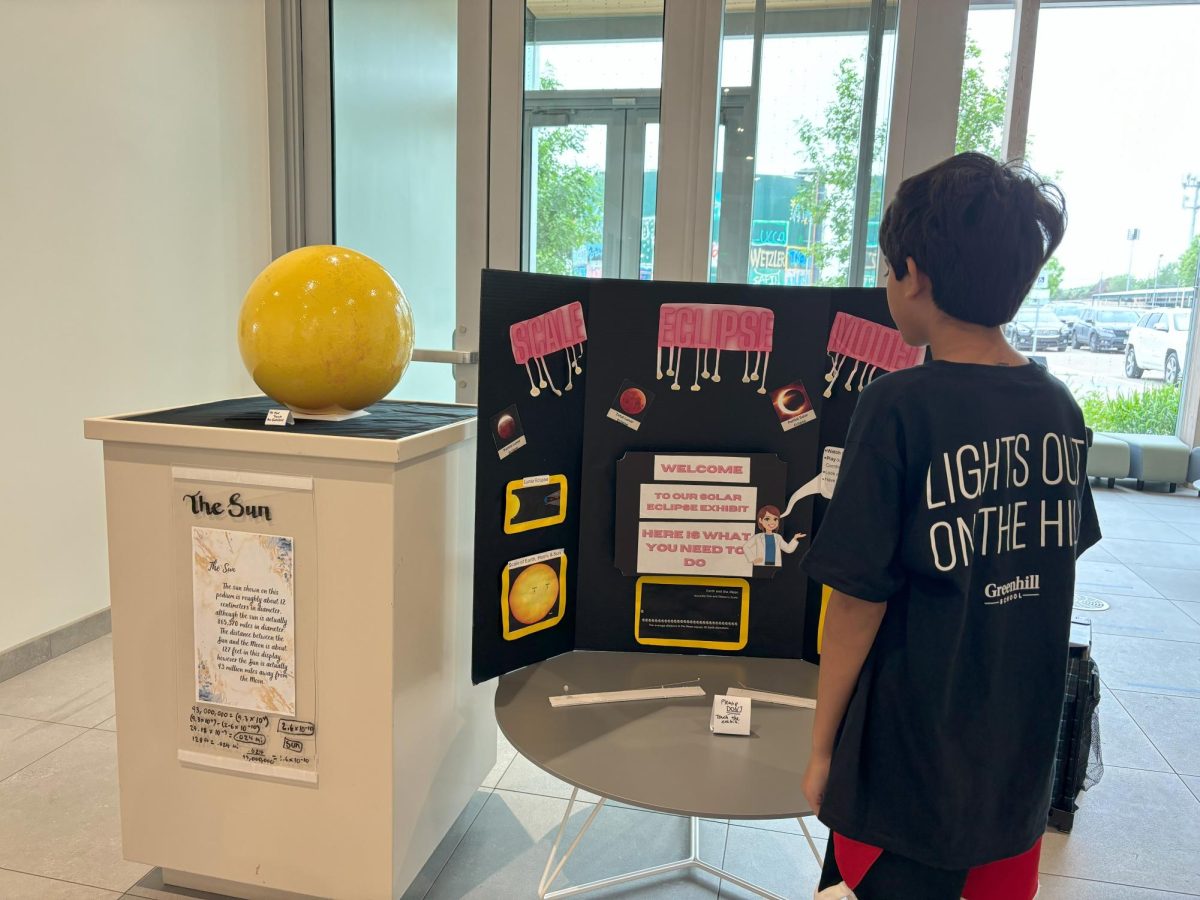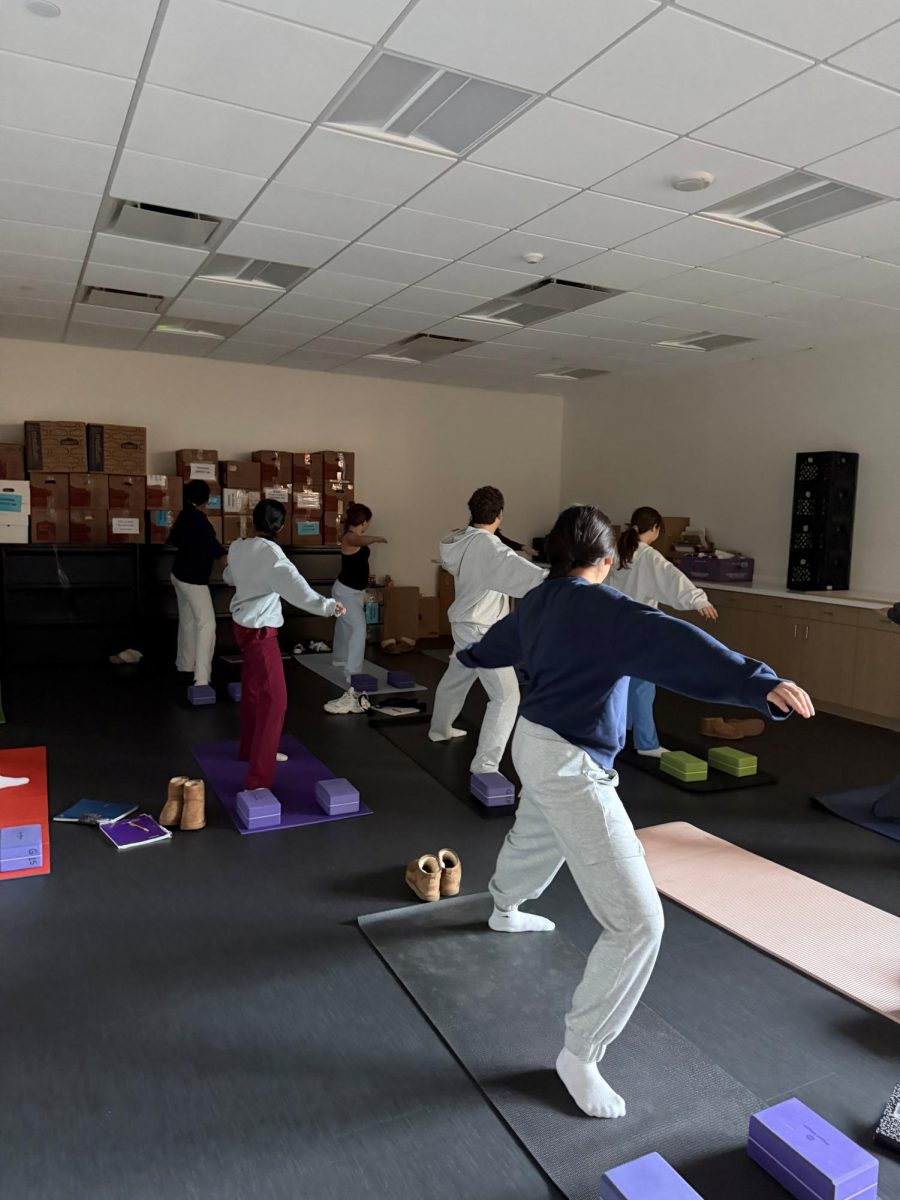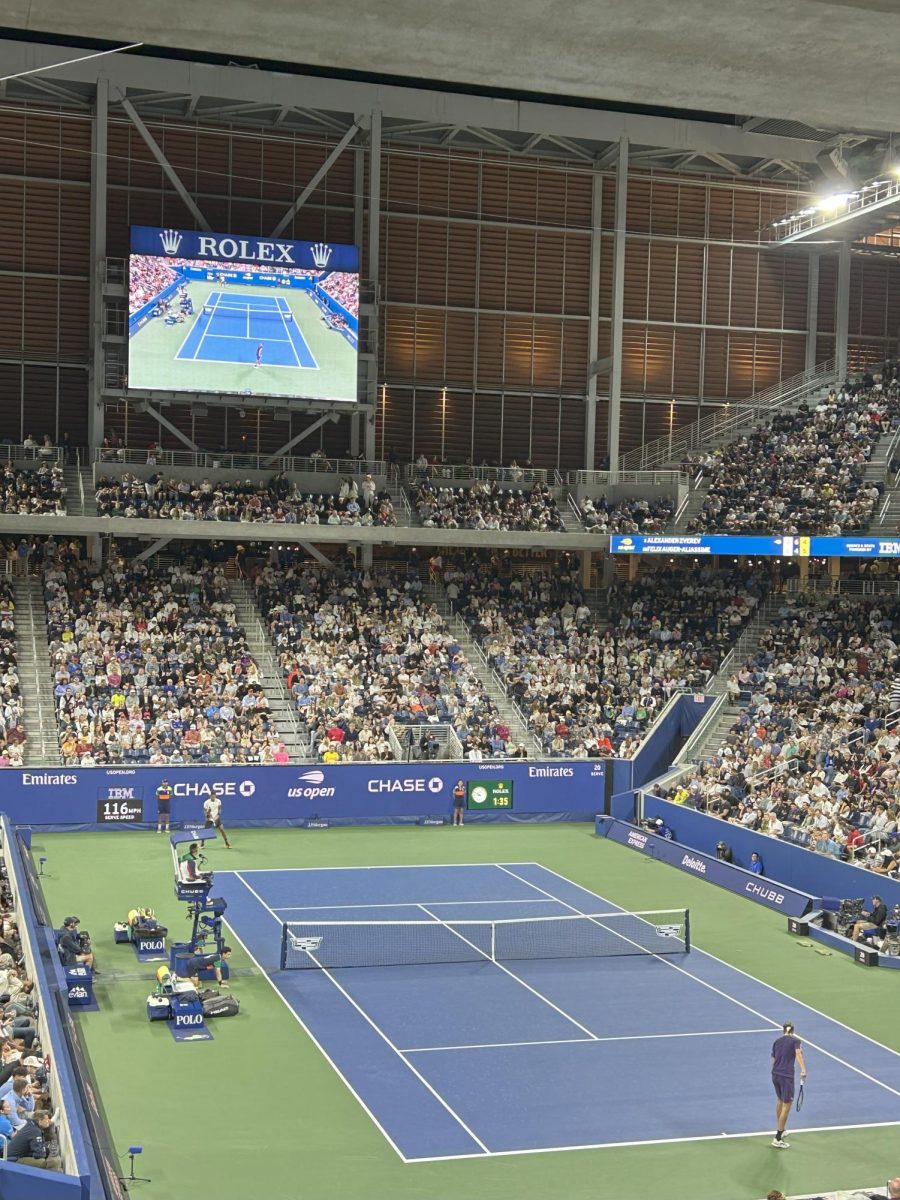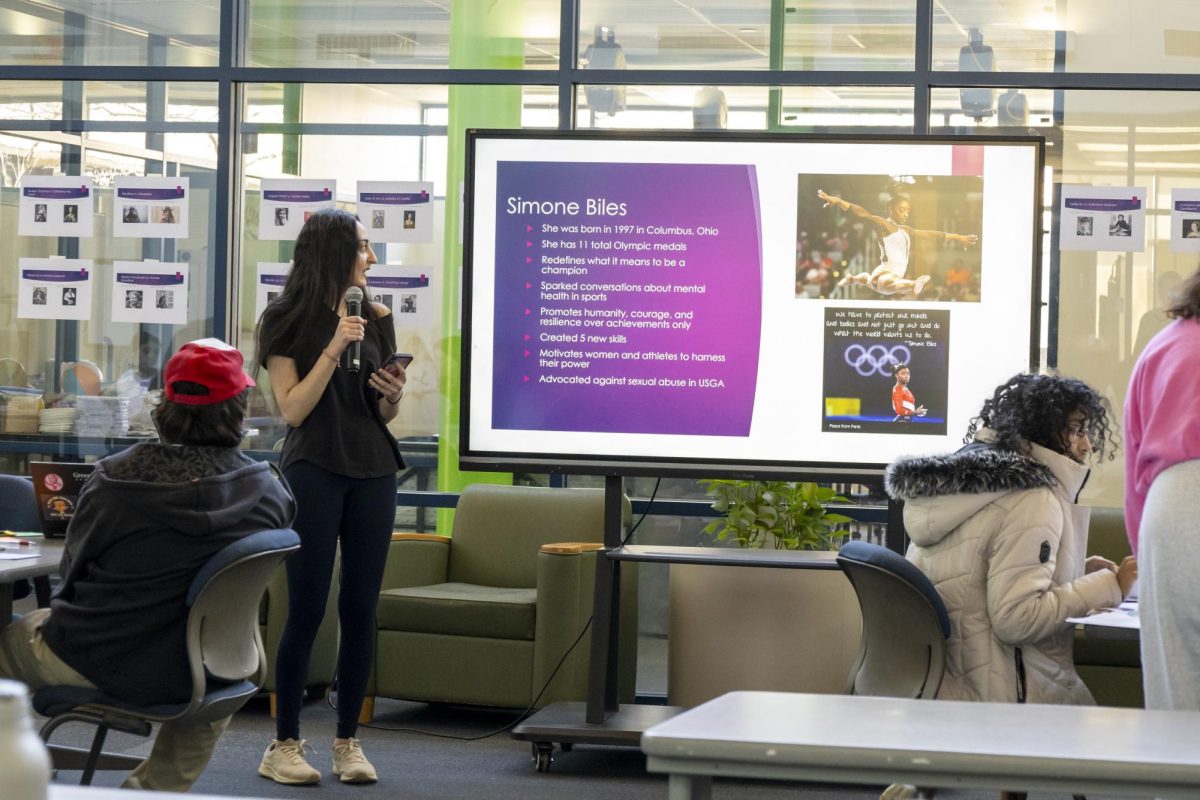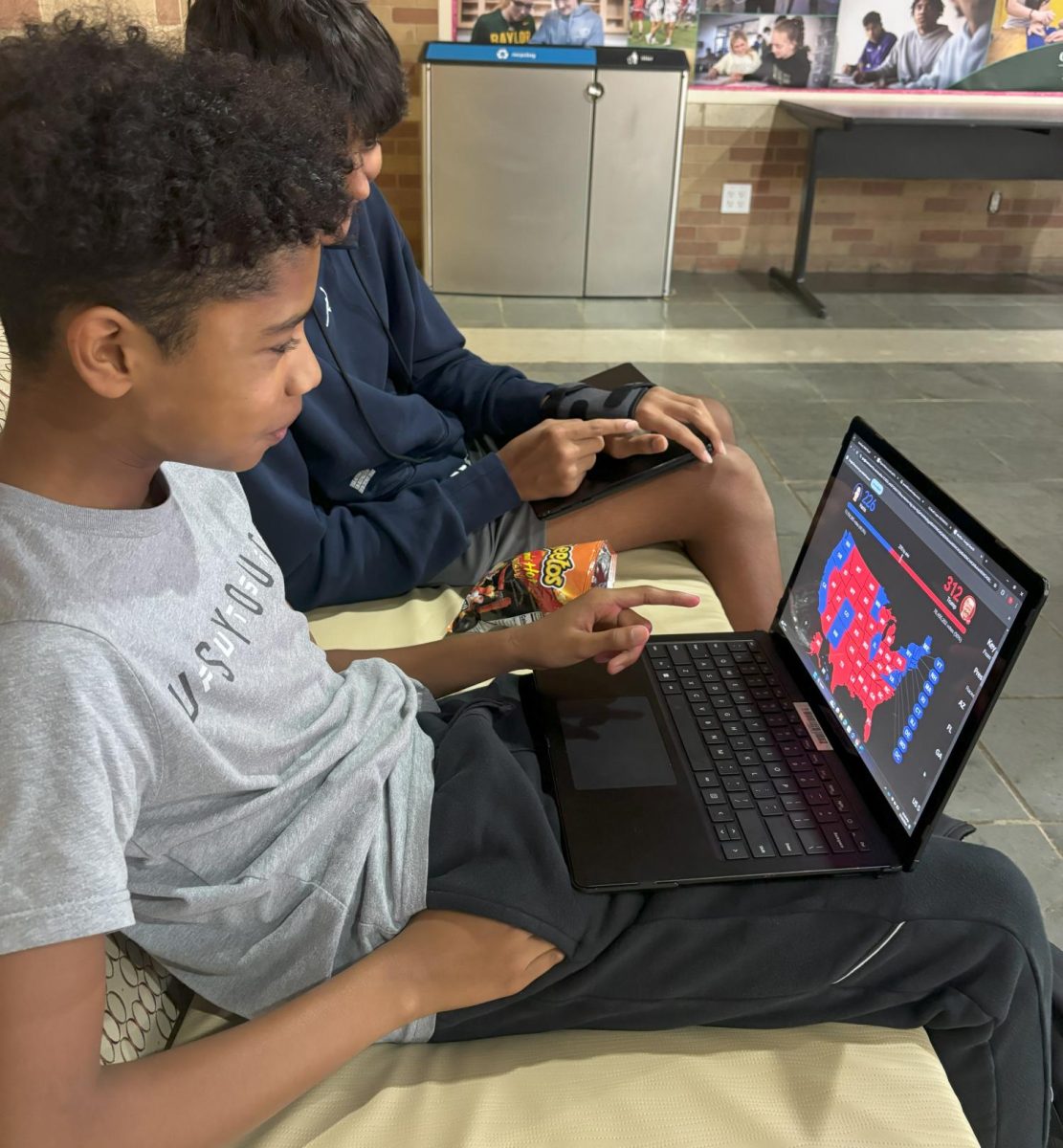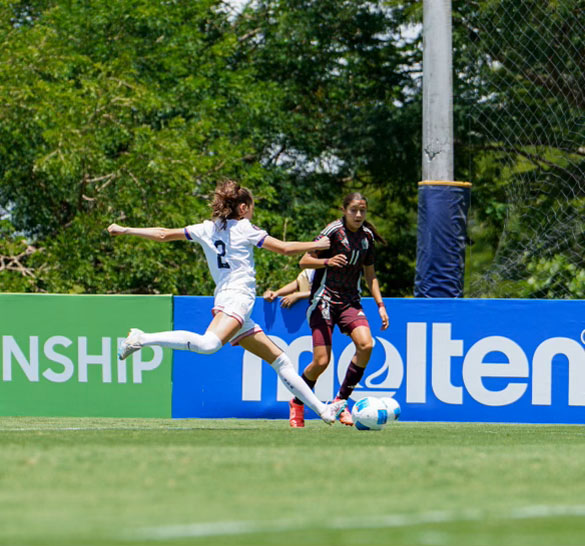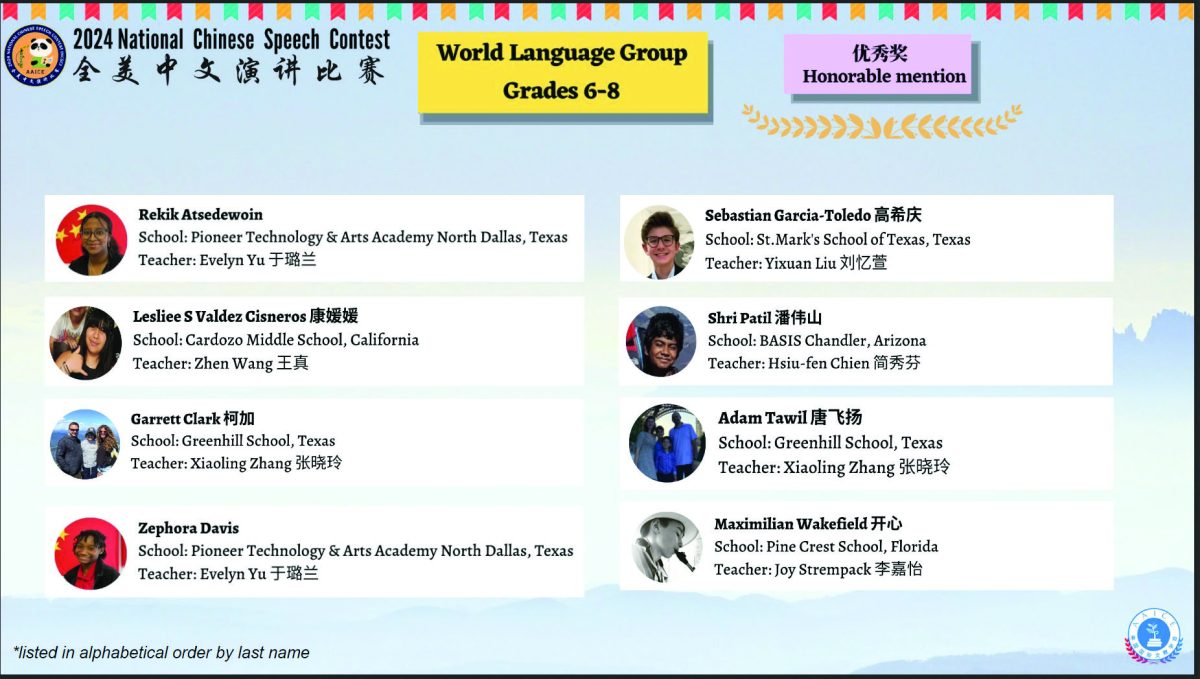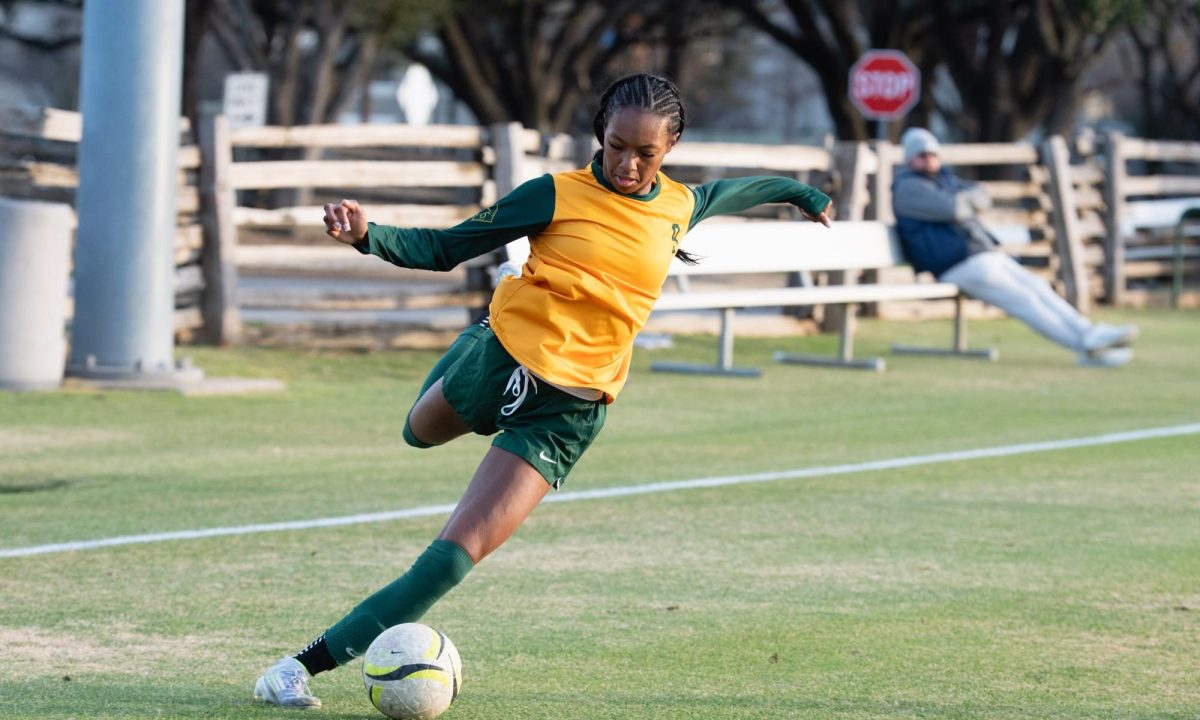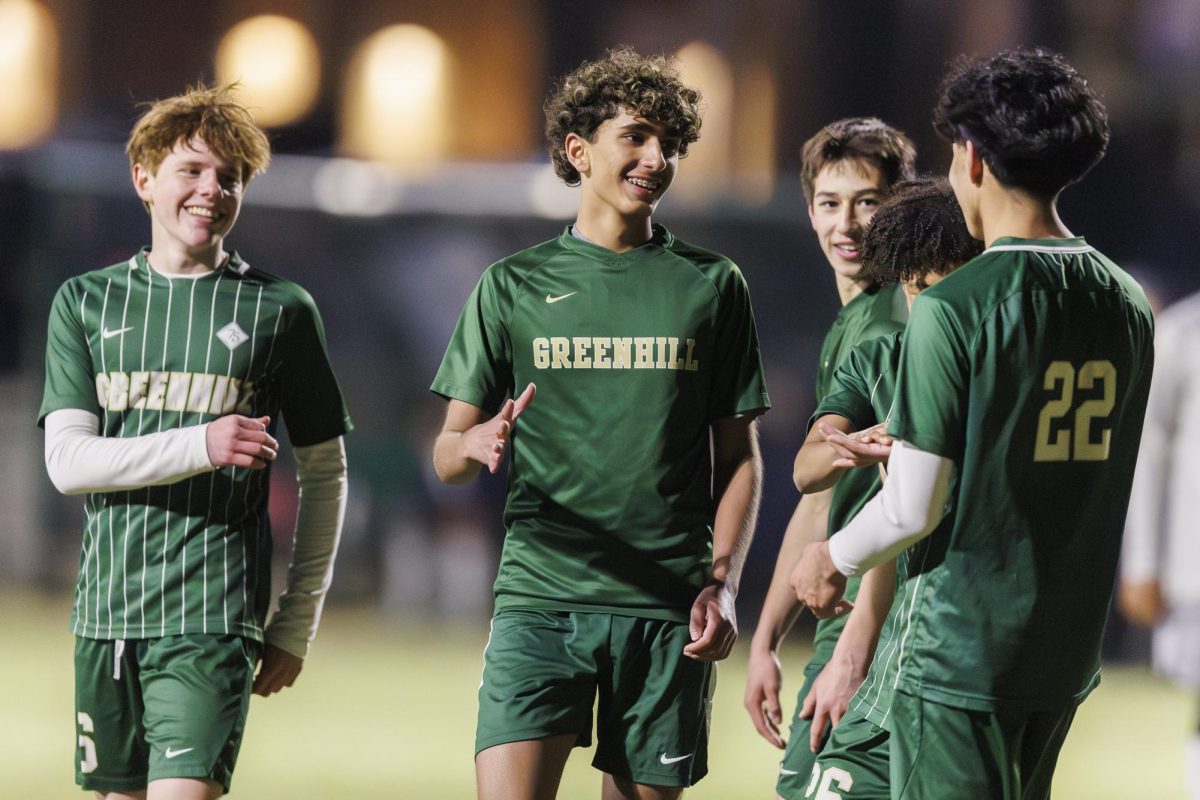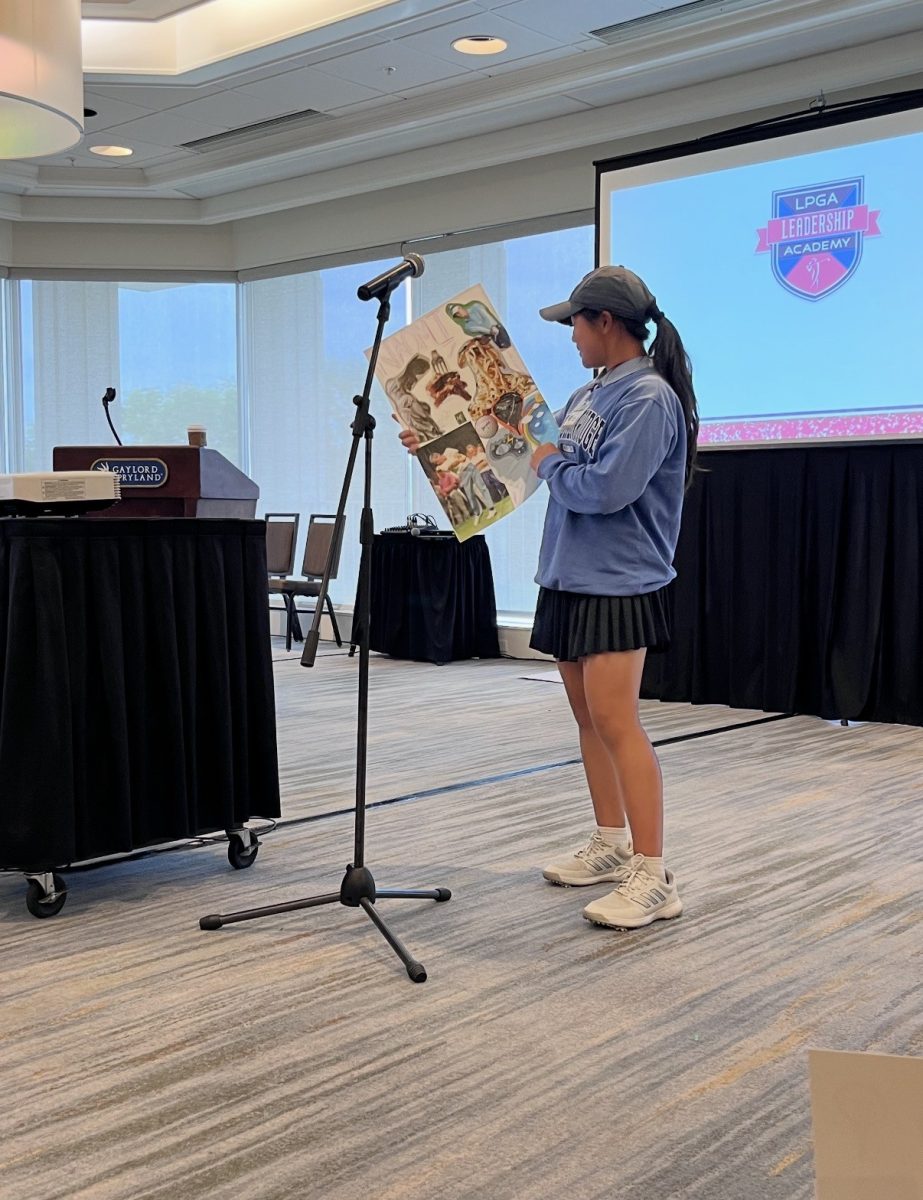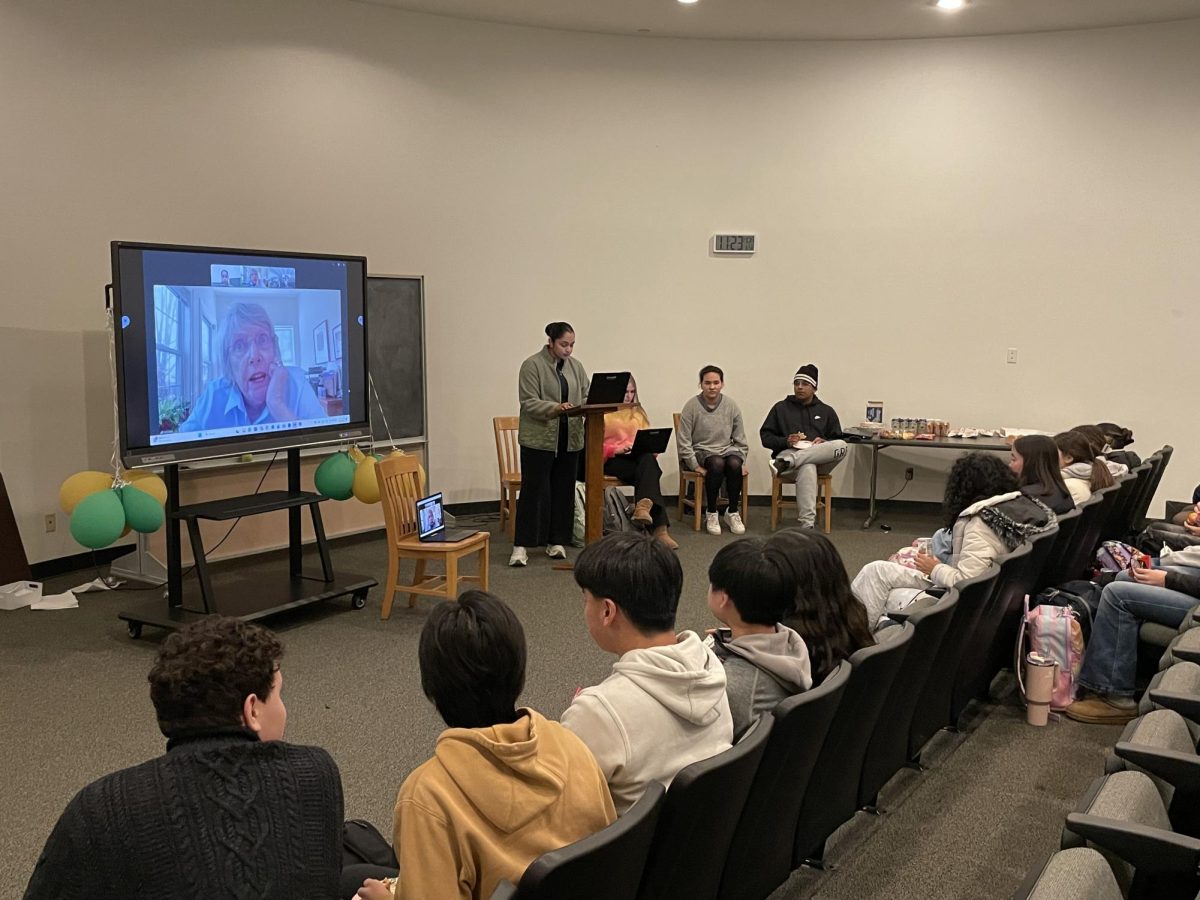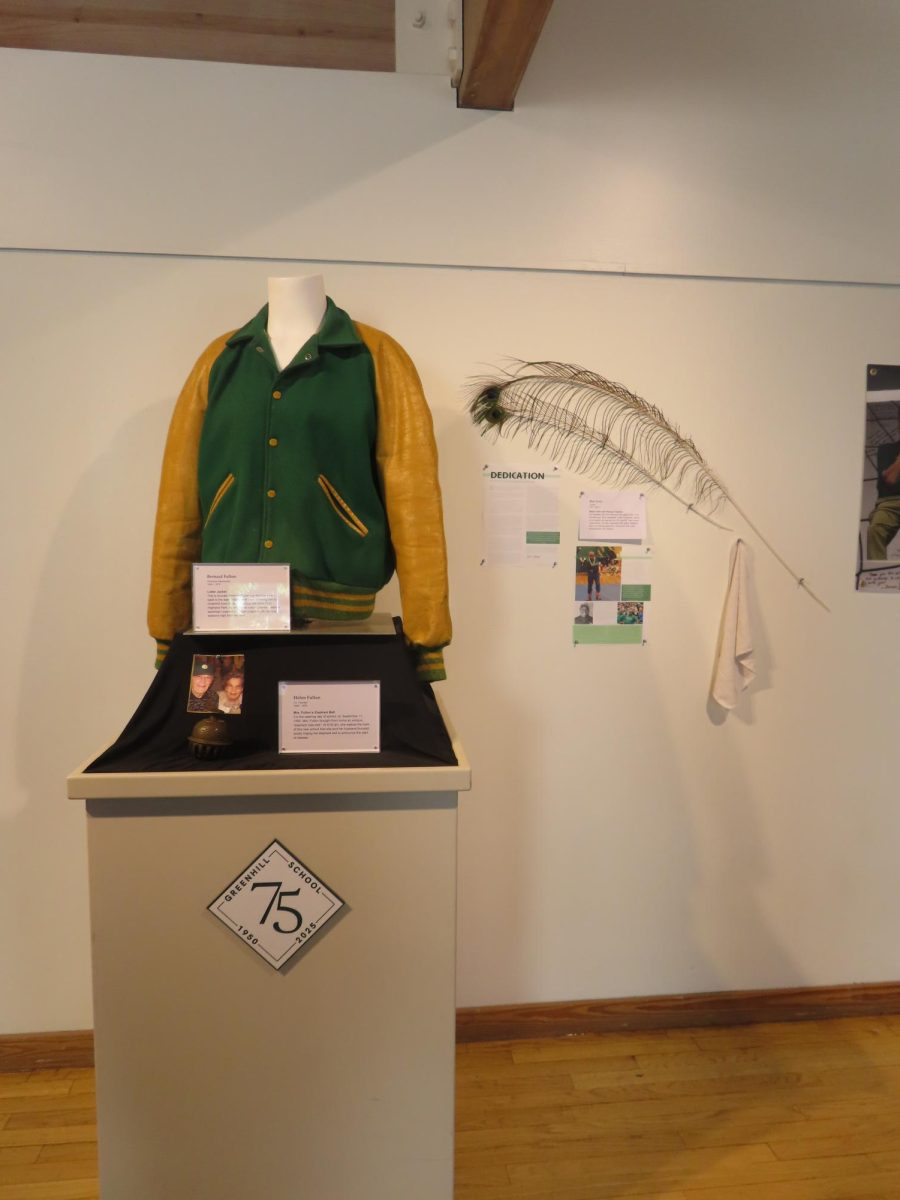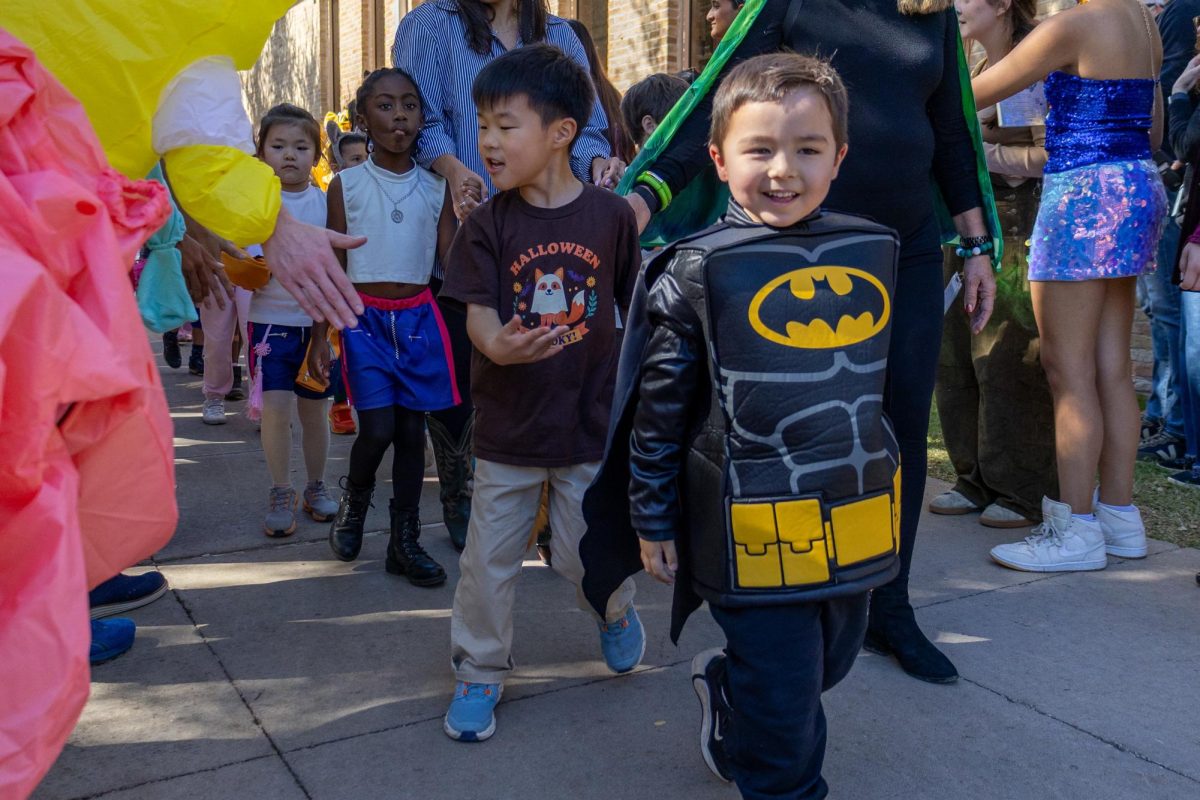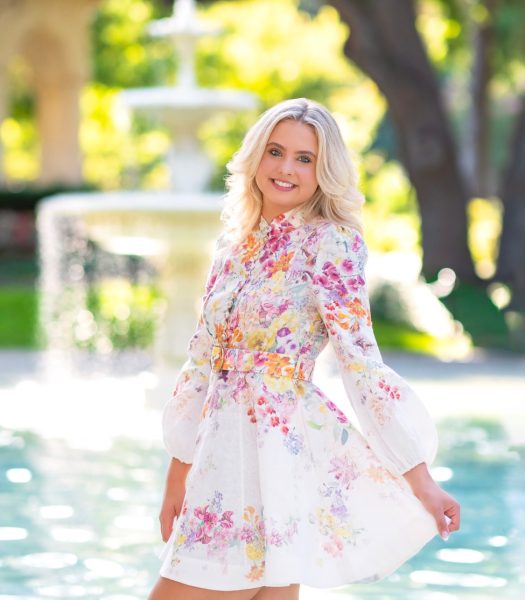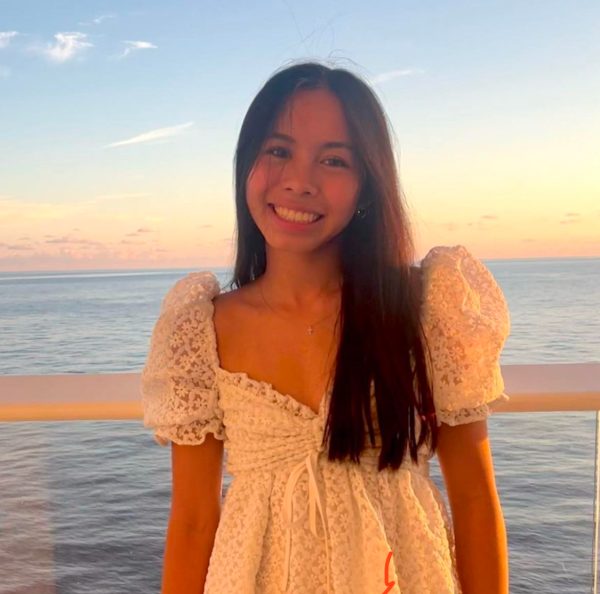For the first time since 1848, Greenhill will sit directly under the solar eclipse path of totality. Students and faculty plan to incorporate shortened classes to account for an astronomy fair and other learning opportunities.
This event will occur on April 8.
Totality, or complete darkness of the sky, is projected to occur in Dallas at 1:40 p.m. and last four minutes. Before and after totality, students and faculty will partake in various activities with their advisory groups.
“The idea is for everyone from Lower School, Middle School [and] Upper School to walk around and learn a little bit about what [they] are about to see or just saw,” Upper School Science Department Chair Treavor Kendall said.
Junior Amanda Park says she is extremely excited to have an interactive learning opportunity.
“It will be special to watch members of the Greenhill community come together and participate in good learning,” Park said. “I’m so thrilled for the fun schedule too.”
During the period of eclipse totality, Kendall has coordinated for data collection to take place. Students and faculty from Bucknell University are traveling to campus to work alongside Greenhill students and faculty.
Kendall has been planning to test four main hypotheses and run four different experiments with Bucknell since the fall of 2023. Greenhill students and faculty have reached out to him in efforts to get involved with the research.
“What’s been really cool is to find out how excited folks are to be a part of this,” said Kendall.
Junior Saida Bidiwala is one of the students who reached out to Kendall to get more involved and says she is participating due to her love for space.
“I’ve never done anything like this before so it’s really exciting to test new hypotheses about such a rare event,” Bidiwala said.
Students are testing various concepts like ozone formation, the sun’s corona and the Theory of Relativity. Many of these concepts have been taught recently in science courses at Greenhill.
“I was really interested to hear about the research being done because it relates to our unit in AP Physics 2,” junior Itamar Friedman said.
When research is complete, the science department says they hope to provide flyers or presentations for the information collected.
“I think the biggest thing is learning. I hope we can really get some answers to the interesting questions,” said Bidiwala.
Not only will the science department be involved in real-time experimentation, but the fine arts department plans to have stations for pinhole photography and drawing as the eclipse is in the totality phase.
“There’s people who are really interested and some people who don’t even know what it is,” Kendall said. “We want to sort of touch all of those people and get them excited.”

